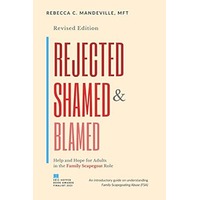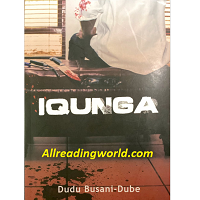Rejected, Shamed, and Blamed by Rebecca C. Mandeville EPUB & PDF – eBook Details Online
- Status: Available for Free Download
- Author:Rebecca C. Mandeville
- Language: English
- Genre: Couples & Family Therapy
- Format: PDF / EPUB
- Size: 2 MB
- Price: Free
The Invisible Wounds of the Scapegoat Child
Are you wondering if you’re trapped in the painful, dysfunctional ‘family
scapegoat’ role? Do you come from a dys- functional
(alcoholic/toxic/abusive) family system and are experiencing difficulty
finding adequate support and appro- priate resources to help guide you in
your healing and recovery process?
Recognizing Family Scapegoating Abuse (FSA)
If you’re in the ‘family scapegoat’ role, you may have felt rejected or
bullied by a parent, sibling, cousin, or in- law and are unable to comprehend
how you became the target of their hostility and maltreatment.
You may have been devastated by a family ‘smear’ campaign (i.e., one or
more family members seek to defame your character or damage your
reputation by spreading negative or false propaganda to others about you)
but few people, even some of your closest friends, can understand why
you’re so frustrated, angry, or distressed.
You may struggle to find competent professionals (doctors, therapists,
counselors, coaches) who understand how genuinely emotionally
debilitating it is to be the focus of negative, ‘shaming and blaming’
narratives within your family-of-origin or extended family.
In Murray Bowen’s Family Systems theory, families are viewed as
emotionally interrelated systems. Scape- goating in a dysfunctional family
system is therefore viewed as being a manifestation of unconscious processes whereby the family displaces their collective psychological
difficulties and complexes onto a specific family member.
Unacknowledged feelings such as guilt, frustration, shame, and anger are
redirected onto the most vulnerable member of the group (often the
youngest child, but not always). In this way, the scapegoated child is subjected to rejecting, shaming, and blaming behaviors via what is known as a
Family Projection Process (which I will expand upon later).
The Insidious Nature of Family Scapegoating
Children who are scapegoated in families are in reality victims of abuse and
neglect, yet this is rarely recog- nized within our Mental Health, Family
Court, or Educational systems. Because scapegoating processes can be
subtle, many scapegoated adult survivors fail to realize that they have
suffered from psycho-emotional abuse growing up, and even their therapist
or counselor might miss the signs and symptoms associated with being in
this most difficult dysfunctional family role.
Specifically: Adults seeking assistance from a mental health professional
may find that the genuine pain and distress they are experiencing is
minimized, dismissed, or invalidated (e.g., “But they’re your family, of
course they love you”; “Family connections are so important, it can’t be
that bad”; “It’s best if you forgive, we need to maintain ties with our family
to be healthy”), which only serves to reinforce the scapegoated adult’s sense
of confusion and isolation.
Scapegoating Is a Process of Dehumanization
While most people might occasionally feel excluded or ‘left out’ of their
family for one reason or another, family scapegoating behaviors go far
beyond that. In fact, scapegoating is closely related to bullying, and both
qualify as overt or covert forms of psycho-emotional abuse. As with
bullying, the scapegoated child can be subjected to aggressive domination
and intimidation tacti
For More Read Download This Book
EPUB



